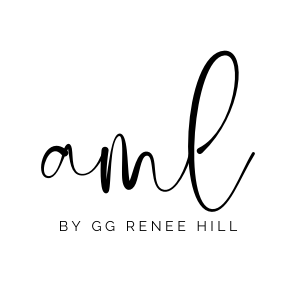a single refrain
march 26 | weekly warmup
What is your single refrain? How does it connect to your roots and origins, if at all?
Who are you outside of how the world typically sees you or what they expect from you?
Are there aspects of you that don’t come out or get explored in your writing because they’re outside of this single refrain? What holds you back from branching out?
Journal about the level of responsibility you feel to represent your background or identity in a certain way.
So far we’ve looked at how our roots and origins inspire the stories we tell. This week, let’s take a look at the themes that consistently show up in our writing, and consider the extent to which our roots and origins can restrict the stories we tell if we’re not careful.
In “How Can We Expand The Way We Write About Our Identities?” Tajja Isen says: “What do we gain from thinking of our writing as an ongoing project to worry at the same wound? Self-awareness, for one thing. Jess Zimmerman, writer and editor-in-chief of Electric Literature, posed this question on Twitter: If you had to boil down your personal essays into a single refrain, what would it be?” One writer said all her essays boil down to "I was a very anxious person and now I'm less anxious" and another said, “"Remember when my marriage failed and it was my fault."
Isen goes on to explore her own refrain which includes her cultural background: “As a biracial woman, my experience of x can leave me feeling hopelessly in-between” and how writing consistently from this lens led to an expectation that all of her work would address this narrative. The patterns we find in our personal stories do deepen our self-awareness, but if we’re not mindful these patterns can limit us.
Isen’s reflections in the article about being a biracial woman and how she is repeatedly asked to represent this posture in her writing struck me. I’m intrigued by how this train of thought can lead us to take stock of what responsibility we feel to stick to certain narratives based on our roots, cultures, gender, religion, affiliations, etc. We need to have an awareness of how much the patterns we see in our writing come from external sources and how much comes from a self-inflicted responsibility to represent ourselves a certain way.
Do I feel a responsibility to represent the experiences of Black women a certain way? Do you feel a responsibility to represent single parents? immigrants? someone with a disability? someone from a certain generation?
Isen speaks about how writers can come to a point where they feel pigeon-holed by themes and narratives that once inspired them. Maybe you started your journey writing about painful experiences from your life, but now you’re ready to move on from that and you feel uncertain about sharing aspects of yourself that have little or nothing to do with that part of your story.
In the popular TED talk, The Danger of a Single Story, Chimamanda Ngozi Adichie’s speaks about this. From the website: “Our lives, our cultures, are composed of many overlapping stories. Adichie tells the story of how she found her authentic cultural voice -- and warns that if we hear only a single story about another person or country, we risk a critical misunderstanding.”
Let’s see how these ideas connect: Yes, we all can notice patterns in our writing, where we tend to “worry at the same wound.” Yes, we can gain self-awareness by noticing these patterns and exploring them from different angles through different pieces of work. But no, we don’t want to become pigeon-holed to these patterns to the extent that we become shy about exploring other aspects of ourselves that have nothing to do with those patterns. We don’t want to stifle our creativity this way, and by showing how we deviate from expectations, we get to break stereotypes of what society expects from us.
What I’m taking from all of this is that it’s important to me to include the influences of my roots and origins in my work, and it is also essential that I value my individuality, allow myself to evolve, and give myself space to express new ideas and ways of being.

